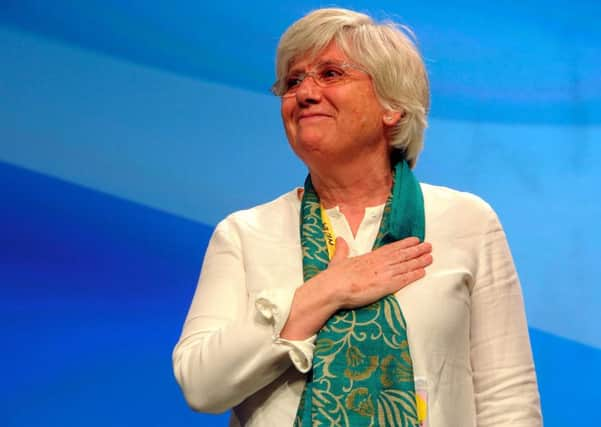Clara Ponsati '˜could be jailed for 33 years' if extradited


Her legal team claimed she could face a total sentence of up to 33 years if she is sent to Spain and convicted of the charges of treason and conspiracy levelled against her.
Prof Ponsati is being sought on charges of violent rebellion and misappropriation of public funds over her role in the controversial Catalan independence referendum last year.
Advertisement
Hide AdAdvertisement
Hide AdHer lawyers have described the prosecution as “politically motivated” by Spain.
They have raised fears the 61-year-old, an economics lecturer at St Andrews University, could spend the rest of her life in jail.
Some of Scotland’s most notorious serial killers have been issued with similar minimum sentences.
Robert Black, who was convicted of the kidnap, rape, sexual assault and murder of four girls aged between five and 11, was sentenced to serve a minimum of 35 years in jail before dying in prison in 2016.
Sex offender Peter Tobin was initially given a minimum sentence of 30 years after being convicted of the murder of Vicky Hamilton in December 2008.
Dennis Nilsen was ordered to serve a minimum of 25 years in connection with the murder of at least 12 young men in London between 1978 and 1983.
Prof Ponsait’s team maintains the condition of “dual criminality” – the issue of establishing equivalent charges in Scots law – is not fulfilled and a European arrest warrant should not be executed.
However, solicitor Aamer Anwar said the Advocate Depute, acting on behalf of Spain, had advised Prof Ponsati she faces the equivalent charge of treason in Scots law.
Advertisement
Hide AdAdvertisement
Hide AdHe said: “Clara Ponsati maintains her innocence of the charges and our instructions remain to robustly defend her from extradition to Spain.
“Clara regards it as surreal that she is now accused of treason, when the Spanish state blames the Catalan government for executing a law that was voted on in the Catalan Parliament elected by the Catalan people.
“From the very beginning we have submitted that the condition of dual criminality is not fulfilled in Scotland, and the European arrest warrants should not be executed.”
He added: “There are serious reasons to believe that the extradition to Spain of Clara would violate the presumption of innocence, the right to a fair trial, the right to freedom of expression, the right to freedom of thought, the right of association and the right to liberty and security.
“Finally, European arrest warrants violate the principle of proportionality when one considers that Clara would face up to 33 years in prison if convicted.”
Catalonia’s president is due to visit Scotland next week to meet First Minister Nicola Sturgeon, Mr Anwar said.
President Quim Torra, who backs independence for the region, was sworn in by Catalonia’s parliament in May.
He is due to arrive in Scotland on Tuesday following a meeting with Spanish prime minister Pedro Sanchez on Monday.
Advertisement
Hide AdAdvertisement
Hide AdHe will meet with Prof Ponsati before joining the First Minister at her official residence, Bute House in Edinburgh, on Wednesday.
Mr Torra’s visit will follow the latest procedural hearing for Prof Ponsati’s case, which is due to take place at Edinburgh Sheriff Court today.
It comes ahead of a four-week hearing scheduled to take place in the summer.
A Crown Office spokesman said: “In extradition cases in Scotland, the Crown is required by statute to act on behalf of the requesting state or territory.
“Once proceedings are active, any question as to the progress of the case is a matter for the court. As this case is active, it would not be appropriate for the Crown to comment further.
“All proceedings are open to the public and press.”